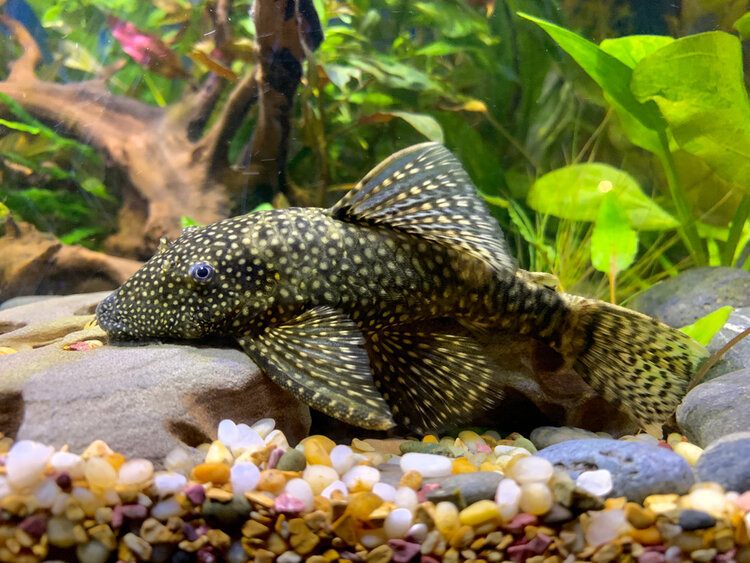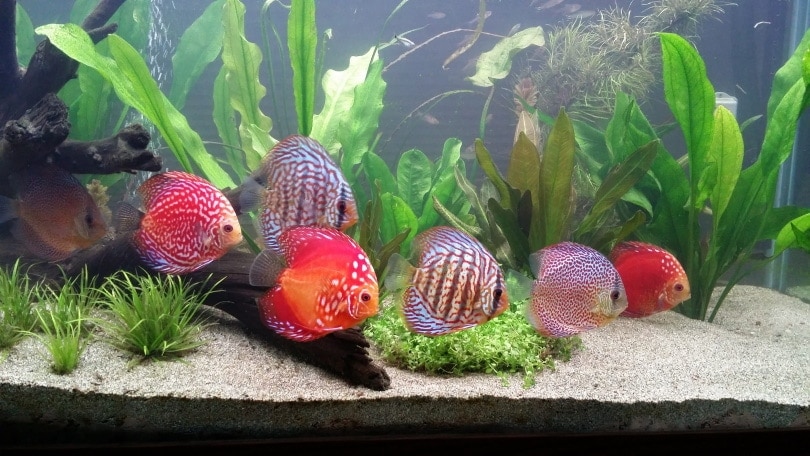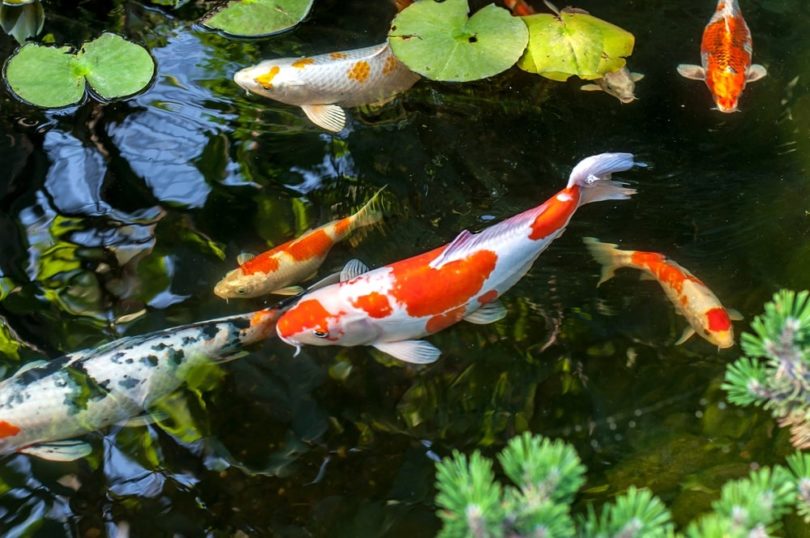What Can I Do With Unwanted Fish? Vet-Approved Options & Tips

Updated on
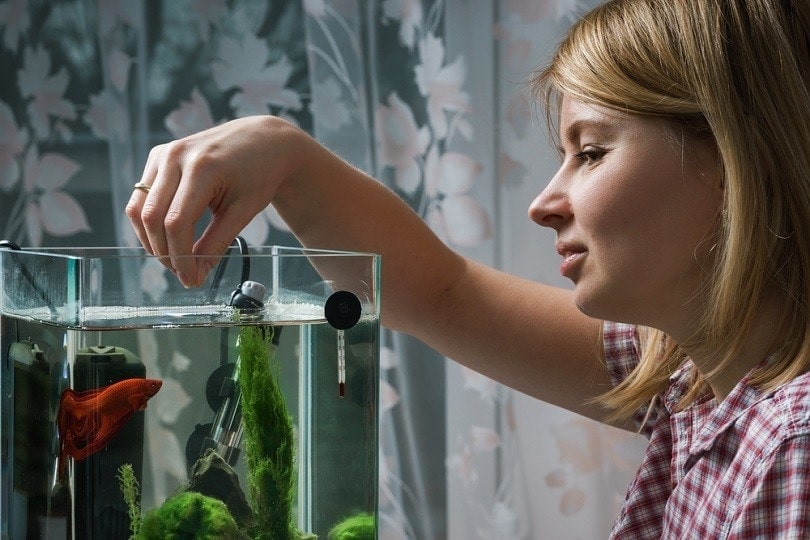
14.7 million out of the 95.7 million households 1 in the US own at least one fish, and for all the right reasons. Fish are low-maintenance pets that lower stress levels and only take up a little space. Fish can also greatly improve your home aesthetics, and aquariums can be customized to fit in almost any space.
Fish owners that overstock their aquariums must find a way to get rid of the excess fish. It seems pretty straightforward; all you have to do is collect the fish in a zip-lock bag and dump them in the nearest water body. However, doing so upsets the ecological balance of these water bodies.
So, what’s the best way to dispose of unwanted fish without harming them or the ecosphere?
The 8 Vet-Approved Options for Unwanted Fish
1. Donate to Friends and Family Members
Inquire whether anyone from your close circle would like to adopt a fish. Ask your friends, workmates, or family members whether they’d like to welcome a fish into their home. You’d be surprised how many people are interested in keeping fish as pets.
However, only give your fish to someone you trust so that you can rest easy knowing your fish is in good hands.
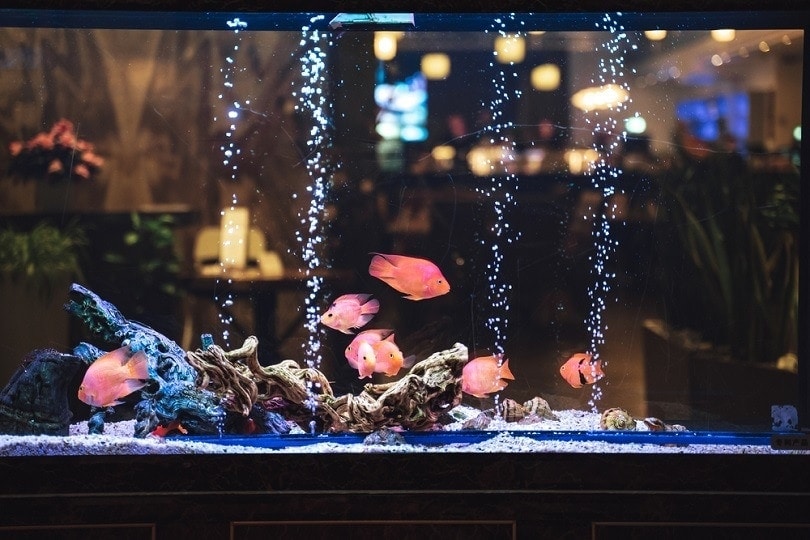
2. Donate to a Local Aquarium or Zoo
Local aquariums and zoos are always eager to receive donations from fish owners looking to let go of their fish. That way, you can simultaneously solve your fish problem and do something good for your local zoos.
The professionals in zoos and aquariums will tend to the fish, ensuring they get the care and protection they need to thrive. The fish will not only get a new home and regular food but also get to interact with their species.
However, before donating, you’ll want to research whether the zoo or aquarium you have in mind accepts fish donations. You’ll also want to check whether they accept your type of fish species and their quarantine procedures.
3. Donate to a Local School or Business
Aquariums and fish bowls are a staple for offices countrywide. Most businesses will have no problem accommodating your fish in one of their aquariums.
Ask local schools and businesses whether they’d accept one of your fish as a donation to their aquariums. You could donate your entire aquarium if you need to.
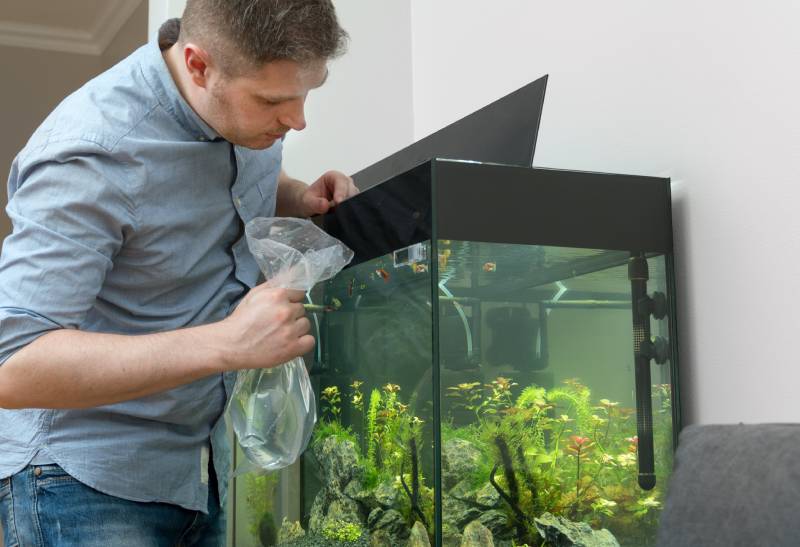
4. Get in Touch With a Local Environmental Organization
Local environmental organizations can provide solutions for disposing of your unwanted fish. The US Fish and Wildlife Service, Oceana, and Habbatitude will point you in the right direction. You can visit their websites and obtain their contact information. You can then reach them via email, phone, or social media platforms.
These organizations will either accept your fish as a donation or tell you where you can safely dispose of your fish without harming them. Most have a vast network of fish enthusiasts and aquariums that would gladly take up your aquatic pets.
5. Sell Your Fish Online
You could always sell your unwanted fish on one of the many online marketplaces and attract prospective buyers from your region. This is a great option for people with exotic or rare fish species sought out by fish enthusiasts.
First, take multiple photos of your fish. Next, collect information about their species, breed, size, age, sex, diet, and health status. Also, mention any genetic abnormalities the fish might have and any special attention they may require.
That way, potential buyers can understand the type of fish they’re working with and whether they can accommodate them.
It’s important to vet the buyers before selling your unwanted fish. The last thing you want is to sell your fish to a negligent and careless buyer. If you find someone suitable, arrange a date to exchange the fish for cash.

6. Donate to a Hobbyist
There are a lot of people in the country who collect fish as a hobby. You can search online forums and social media groups for fish hobbyists in your area. Get in touch with a couple of them and try your luck.
However, it’s worth noting that most hobbyists only collect rare and exotic fish species. You might have a hard time donating your goldfish to a fish hobbyist, but it’s still worth a try.
Even if they don’t accept your fish, you could end up getting advice on the best organizations and aquariums to donate to.
7. Return Your Fish to the Store
You can try returning the fish back to where you bought it from as a last resort. Most stores accept returns, but they’re unlikely to refund you for your purchase.
Pet store owners understand that some customers make impulsive decisions and buy pets like fish on a whim.
If you’re looking to return your pet fish, make sure they’re in good condition and free of disease. Don’t be shy to ask for a refund or at least a partial one if you can.
That’s because the store will still sell your fish, although at a discounted price.

8. Consider a Trade
You might be able to acquire fish you don’t have by trading some extra fish you have with a hobbyist who is willing to trade them for something you want to add to your collection. This is an alternative to buying fish and can also help establish good long term partnerships with other hobbyists as you help each other’s collections grow.
Ensure that you always quarantine any new fish that come to your house for at least 6-8 weeks before introducing them to your community tanks.
What You Shouldn’t Do With the Fish You Don’t Want
With that out of the way, let’s now look at what you shouldn’t do to fish that you don’t want. Fish are living creatures and require humane treatment, regardless of whether you want them. That said, here’s what you shouldn’t do to dispose of your unwanted fish:
1. Flush It Down the Toilet
Flushing your unwanted fish down the toilet will get rid of them, but it’s not the best way to go about it.
Doing so will cause a painful and stressful death and is completely inhumane. What’s more, the fish can contaminate your water supply and even clog your sewer line, necessitating costly repairs. Flushing your fish down the toilet is an absolute no-no.
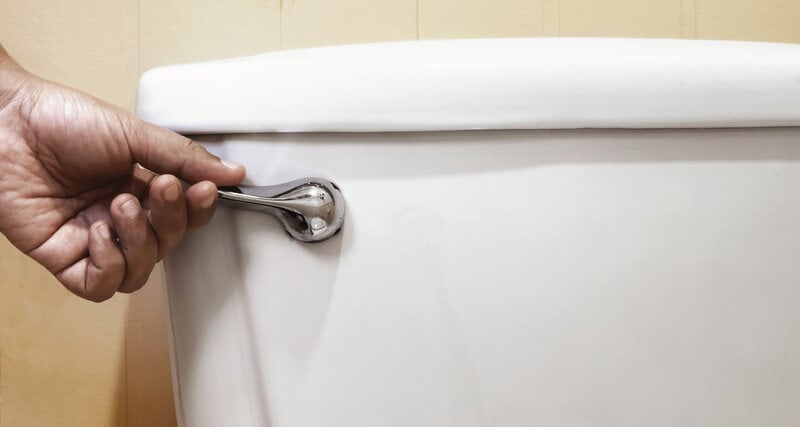
2. Dumping Into a Lake or River
Contrary to popular thought, dumping fish into lakes, oceans, and rivers isn’t freeing them.
In fact, releasing fish into the wild does more harm than good. Most pet fish aren’t native to the US and will disrupt the natural ecological balance. The fish might reproduce and take over ecosystems leading to the death of other species.
That’s why dumping fish in natural water bodies is a punishable offense.
What’s more, living conditions in natural water bodies are very different from those in a home or office aquarium. The sudden change in pH, salinity, temperature, and speed of water flow can overwhelm the fish and lead to a decline in their health.
What’s more, aquarium fish aren’t used to competing for food and other resources. Wild fish will have a major advantage over your fish and will leave little to nothing for the pet fish to survive on.
Should I Dump My Fish if It Outgrows Its Tank?
No, dumping fish if they outgrow their tank is never a good idea. The best option is to buy a bigger tank that can accommodate the fish.
Alternatively, you could sell the smaller fish to leave more room in the tank for the larger ones if you can’t donate them.
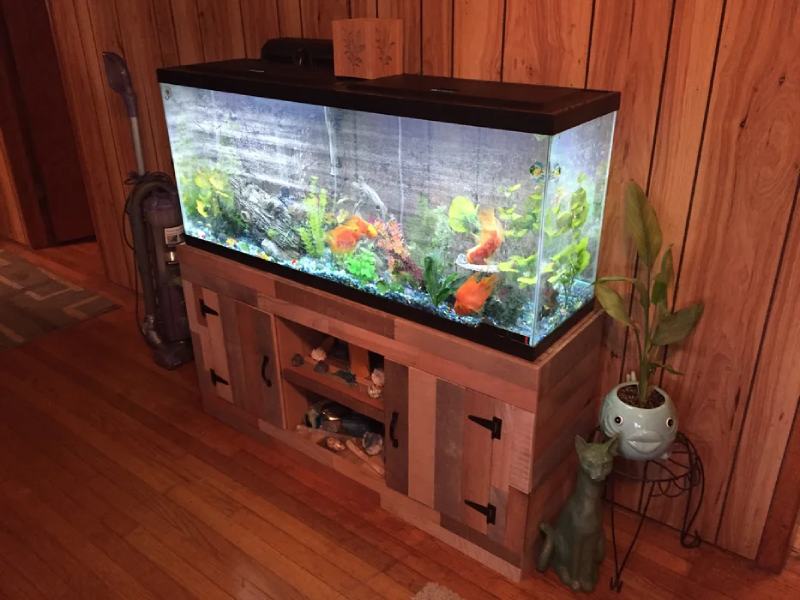
Telltale Signs That Your Fish Tank Is Overcrowded
Keeping your fish cramped up in their fish tanks is worse than dumping them in the lakes and oceans.
Overcrowding makes the living environment unconducive for the fish’s survival. The fish will become stressed, stunting their growth, lowering their immunity, and making them more likely to catch diseases.
Here are a few telltale signs that you have an overcrowded fish tank:
Visible Stress Reactions
Crowded fish in tanks will show obvious signs of stress. These stress signals include swimming frantically, rubbing themselves on gravel, and locking their fins on the side. These are signs that the tank is overcrowded and your fish don’t have enough space to thrive.
Overly Aggressive Fish
Overcrowding in the fish tank may make the fish become more aggressive toward each other. You’ll notice the fish attacking each other more and getting hurt in the process.

Increased Incidences of Disease
The stressful living conditions in crowded fish tanks can trigger diseases. Sick fish show signs of dizziness while swimming and don’t eat.
Water Parameters are Suboptimal
If your water tests repeatedly point towards suboptimal measurements (particularly for nitrates), it’s a very good indication that your tank is overcrowded and it might be time to upgrade.
Final Thoughts
Unwanted fish still deserve a home and flushing them down the toilet or dumping them in natural water bodies won’t do you or the fish any good.
Fortunately, there are plenty of organizations and homes looking for a fish or two to add to their collection. And it’s your responsibility to find a decent home for your unwanted fish. It’s the least they deserve.
Featured Image Credit: Alexander Geiger, Shutterstock




